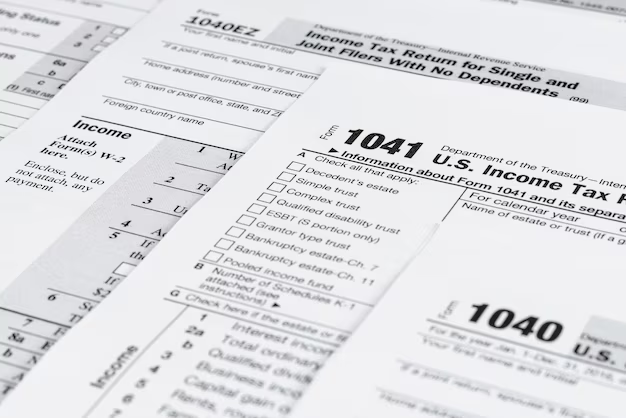Understanding Texas' Approach to State Income Tax: What You Need to Know
For many people considering a move to Texas or evaluating their tax situation, a key question arises: Does Texas have a state income tax? This simple yet crucial question can influence financial planning, career decisions, and even retirement strategies. As we navigate the multifaceted world of taxation in the United States, Texas provides a unique perspective. Let's delve into the details of Texas' stance on state income tax and how it affects residents.
Texas’ Income Tax Status: A Clear Picture
When it comes to state income taxes, Texas stands out among its peers. The state is renowned for its zero state income tax policy. Residents of Texas are not required to pay a state income tax, which makes it an attractive destination for individuals seeking to optimize their take-home pay. This absence of state income tax is anchored deeply in Texas’ economic strategies aimed at fostering a business-friendly environment.
The Impact on Residents
More Money in Your Pocket
With no state income tax, residents of Texas enjoy the benefit of keeping more of their income. This can especially appeal to those with higher earnings, as they might see a notable difference in their take-home pay compared to states with high income tax rates.
Key Takeaways:
- 🏠 Better Purchasing Power: Keep more of what you earn.
- 💡 Increased Savings: More funds for savings or investments.
- 🎓 College & Retirement: Easier to save for education or retirement.
Competitive Advantage for Businesses
The lack of state income tax isn’t just a boon for individuals; it also plays a critical role in Texas’ economic growth. Businesses find Texas appealing for setting up operations due to its tax-friendly climate, which often results in more robust job growth and opportunities for locals.
Benefits for Businesses:
- 🚀 Enhanced Profit Margins: Lower taxes can mean higher retained earnings.
- 🌟 Attraction of Talent: A state with no income tax can attract top talent looking to maximize their earnings.
Understanding the Trade-Offs
While the absence of a state income tax is advantageous, there are other fiscal dynamics at play. Texas compensates for this through other forms of taxation.
Property Taxes
Texas is known for having relatively high property taxes compared to the national average. This is an essential consideration for potential homebuyers as it substantially impacts the cost of homeownership.
Consideration Points:
- 🏡 Plan Your Budget: Anticipate higher property taxes when purchasing property.
- 📈 Property Value Impact: The rate is assessed based on the property value.
Sales Taxes
The state offsets its no-income-tax policy with higher sales taxes, impacting goods and services. While this affects consumption, residents are often willing to make the trade-off for no state income tax.
Sales Tax Insights:
- 🛒 Pragmatic Purchasing: Be mindful of sales tax during purchases.
- 💸 Consumables: Everyday items may incur a higher tax.
Comparisons With Other States
Understanding how Texas stacks up against other states can provide context and aid in financial planning. Here’s a brief look at some commonwealth strategies elsewhere:
States With No Income Tax
Texas belongs to a small group of states with no state income tax, including Florida and Wyoming. These states collectively attract individuals looking to preserve their income.
States With High Income Tax
Conversely, states like California and New York have significant personal income tax rates, which can amplify the financial benefits of moving to Texas for high earners.
Who Benefits the Most?
Several groups particularly benefit from the lack of state income tax in Texas:
- High-income earners: They experience the most significant tax savings.
- Entrepreneurs and business owners: Retained income can bolster business growth and personal wealth accumulation.
- Retirees: Fixed incomes stretch further without the burden of state income tax.
Planning a Move to Texas? Here’s What to Consider
If you’re contemplating a move to Texas, whether for career opportunities or financial advantages, consider these factors:
- 🏠 Housing Costs: Evaluate property tax rates along with home prices.
- 🚗 Cost of Living: Analyze the overall cost against potential savings.
- 📊 Financial Goals: Align your long-term financial plans with the state’s tax framework.
A Broader Context: Texas and the National Tax Landscape
Texas' policy reflects broader trends and debates in the U.S. about taxation and economic growth. While it offers a model that emphasizes business attraction and individual savings, each state’s unique challenges and opportunities must be considered.
Economic Contributions
Texas’ no-income-tax policy contributes to dynamic growth, fueling everything from the tech sector to traditional industries like oil and gas. This growth typically leads to job creation and economic diversification, benefiting the broader economy.
Final Summary: Embracing Texas’ Tax Environment
Relocating or living in Texas comes with strategic financial advantages due to its lack of state income tax. It’s crucial to weigh these benefits against other costs like property and sales taxes and consider personal circumstances before making the leap.
Practical Tips:
- 📈 Budget Wisely: Factor in all taxes when planning finances.
- 🔍 Stay Informed: Keep abreast of any fiscal policy changes.
- 👨👩👧👦 Assess Family Needs: Consider how Texas' tax landscape aligns with family goals.
As you explore the potential gains and adjustments, remember that a strategic approach and comprehensive understanding of the state’s tax policies can greatly enhance financial decision-making. Whether you’re a resident or contemplating becoming one, Texas’s unique approach to taxation can provide significant economic opportunities and advantages.

Related Topics
- Are State Income Tax Refunds Taxable
- Are State Tax Refunds Taxable Income
- Can Business Deductions Reduce Your State Personal Income Tax
- Do I Have To File State Income Tax
- Do You Get State Income Tax Back
- Do You Pay Georgia State Income Tax On Qualified Dividends
- Do You Pay State Income Tax On Qualified Dividends
- Does Al Have State Income Tax
- Does Alabama Have a State Income Tax
- Does Alabama Have State Income Tax
